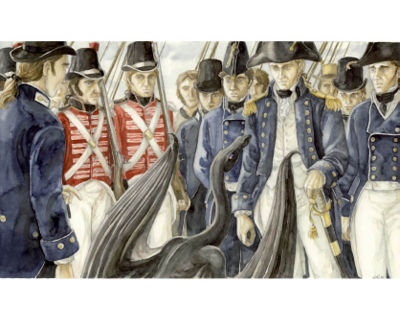Difference between revisions of "Dragonet"
From TemeraireWiki
| Line 2: | Line 2: | ||
A newly-hatched dragon. The common western wisdom held that to successfully domesticate a dragon, it must be harnessed almost immediately after its hatching, or it will remain feral. | A newly-hatched dragon. The common western wisdom held that to successfully domesticate a dragon, it must be harnessed almost immediately after its hatching, or it will remain feral. | ||
| − | The | + | The Chinese customs are different. It is thought that the dragonet has to be at least 15 months old and has to meet many candidates before choosing a companion. |
| − | |||
Dragonets exhibit immediate signs of intelligence, including the use of language, upon hatching. | Dragonets exhibit immediate signs of intelligence, including the use of language, upon hatching. | ||
| − | |||
| − | |||
[[Category:Dragons]] | [[Category:Dragons]] | ||
Latest revision as of 20:04, 21 June 2008

Hatchling, by Anke Eissmann, depicting the hatching of Temeraire. (c) Anke Eissmann
A newly-hatched dragon. The common western wisdom held that to successfully domesticate a dragon, it must be harnessed almost immediately after its hatching, or it will remain feral.
The Chinese customs are different. It is thought that the dragonet has to be at least 15 months old and has to meet many candidates before choosing a companion.
Dragonets exhibit immediate signs of intelligence, including the use of language, upon hatching.